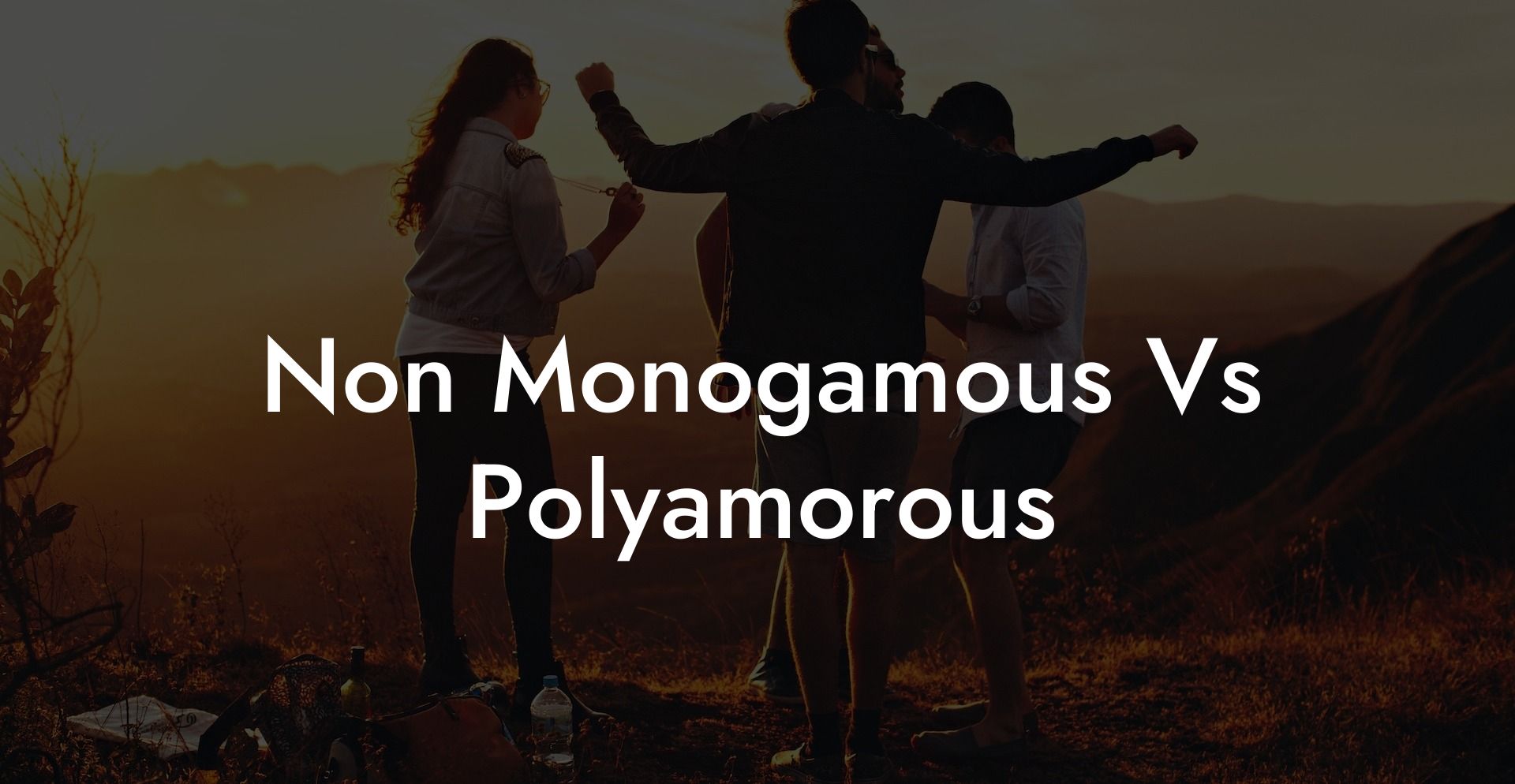Are you feeling confused about the differences between non-monogamy and polyamory? You're not alone! People often use these terms interchangeably, but they actually describe two distinct relationship styles. In this guide, we'll explore the key differences between non-monogamous and polyamorous relationships, helping you gain a better understanding of these unique approaches to love and connection.
Non Monogamous Vs Polyamorous Table of Contents
What is Non-Monogamy?
Non-monogamy is an umbrella term that encompasses a variety of relationship styles outside of traditional monogamy. In essence, it refers to engaging in romantic or sexual relationships with more than one person at a time. Non-monogamous relationships can take many forms, including:
- Open relationships: Each partner is allowed to pursue other romantic or sexual connections outside of their primary relationship.
- Swinging: Couples engage in sexual activities with other couples or individuals, often within a social setting or community.
- Polyamory: Multiple romantic relationships are formed with the consent and knowledge of all parties involved.
- Relationship anarchy: Romantic relationships are not bound by traditional rules or expectations, allowing for complete freedom and flexibility in partner interactions.
What is Polyamory?
Polyamory is a specific form of non-monogamy that involves forming multiple romantic relationships with the consent and knowledge of all parties involved. These relationships can range from casual to committed and are built on a foundation of trust, communication, and honesty. Polyamorous relationships can take on various structures, including:
- Triads: Three people are romantically involved with each other, forming a relationship unit together.
- Quads: Four people are romantically involved with one another, often as two couples that connect.
- Polycules: A network of individuals who are connected through various romantic or sexual relationships.
- Solopoly: Individuals who maintain their autonomy while forming multiple romantic connections without a specific primary partner.
Key differences between Non-Monogamy and Polyamory
While both non-monogamy and polyamory involve having relationships outside of traditional monogamy, there are several important differences between the two:
- Emphasis on emotional connections: Non-monogamous relationships can be focused on casual sexual encounters or more emotionally-driven relationships, while polyamory is primarily centered on fostering deep emotional connections and committed relationships with multiple partners.
- Relationship structures: Non-monogamous relationships can take many forms, while polyamorous connections generally involve more intimate and interconnected networks of partners.
- Communication and consent: Both non-monogamy and polyamory require open communication and consent from all parties involved, but polyamory often places a stronger emphasis on ongoing discussions, honesty, and negotiation among partners.
Non Monogamous Vs Polyamorous Example:
Imagine two couples—Couple A and Couple B—who are exploring alternative relationship styles. Couple A decides to try swinging, attending parties and engaging in sexual encounters with other couples, while maintaining their primary emotional connection with each other. This is an example of a non-monogamous relationship without the long-term, emotional commitments characteristic of polyamory.
In contrast, Couple B forms a committed romantic relationship with another couple, creating a quad. All four individuals are involved in each other's lives, fostering emotional connections while navigating consent and communication within the context of their polyamorous relationship.
Ultimately, non-monogamous and polyamorous relationships both offer unique pathways for deepening connection and exploring love outside of mainstream monogamous norms. Understanding these distinctions can lead to more satisfying, authentic relationships that align with your desires and values. If you found this guide helpful, please share it with others who may be curious about exploring alternative relationship styles, and be sure to check out our other in-depth guides here on The Monogamy Experiment!













